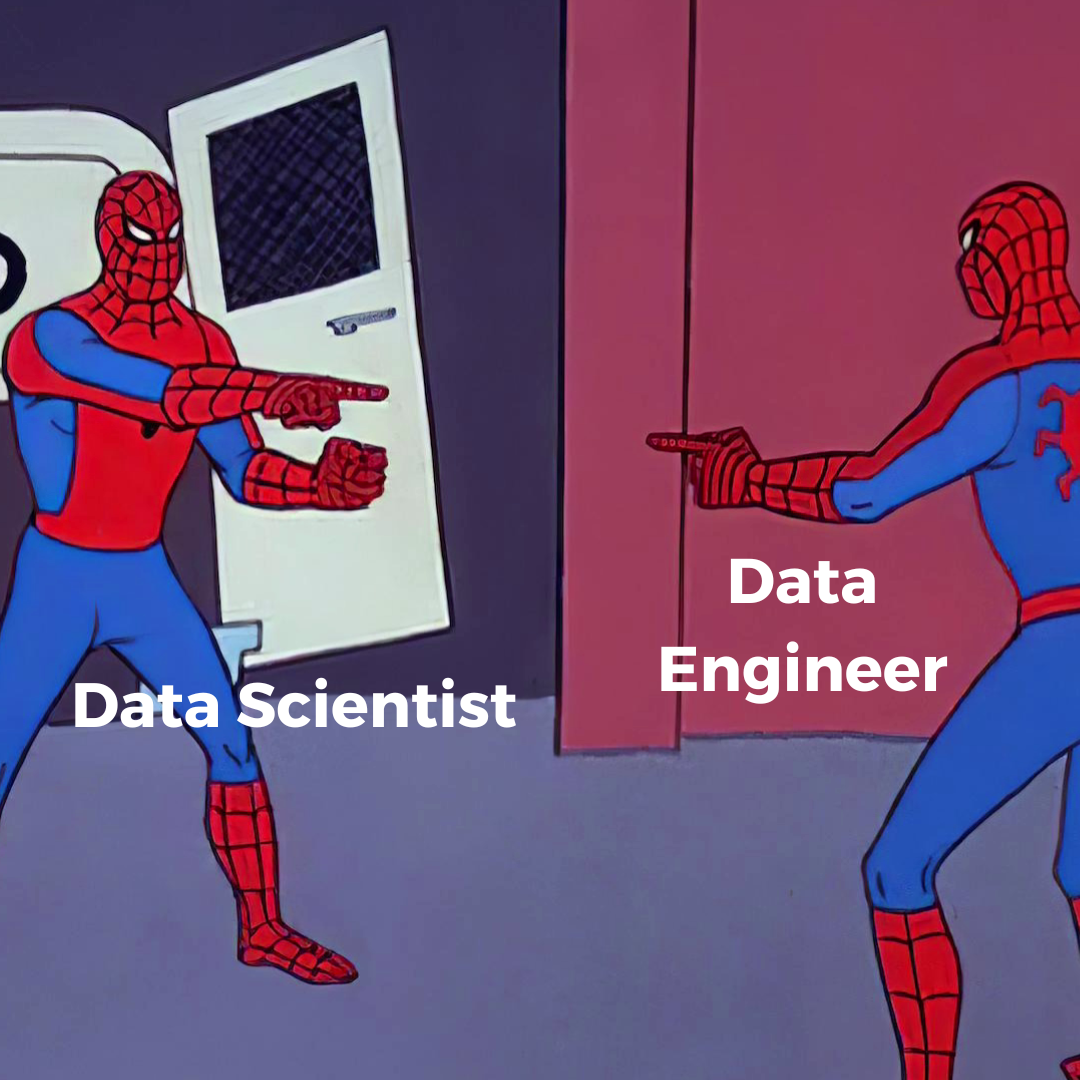Data Engineer Vs Data Scientist
06 Dec, 20225 minutes
In the past Data Scientists were expected to fill the role of Data Engineers. With the rise of Big Data, the world of data has evolved and became more complex, challenging, and nuanced.
Companies are now expecting more insights and answers than ever before. To meet these needs, the role of a Data Engineer has been split into two separate roles.
In this blog, we take a deep dive into the role of a Data Engineer and a Data Scientist, exploring the responsibilities, requirements, salaries, and career pathways, demonstrating how unique the two are.
What is the difference between a Data Engineer and Data Scientist?
Data Engineer Snapshot
The Role
Data Engineers specialise and prepare the data infrastructure for analysis. They gather, move, and transform data into pipelines for the data science team. Their day to day involves designing, building, testing, integrating, managing, and optimising data using a variety of sources. Data Engineers use a range of different languages such as C++, Java or Python depending on the scale of their task.
The Requirements
Data Engineers often have a background in computer engineering or science. They are usually proficient in programming languages such as Java, Python, SQL, and Scala. Experience with these allows them to apply different analytical approaches to solve business problems.
The Career Pathways
Data Engineers usually stem from a previous career in Software Engineering or Business Intelligence. Entry level opportunities are hard to come by therefore these routes will give them experience of the infrastructure and systems that are essential to the field of data.
After gaining a few years’ experience, a Data Engineer could develop into a Senior Data Engineer or a Team Leader role. They could also transition into Data Science.
The Salaries
The salary can range from £40,000 up to £90,000, this is depending on experience.
Data Scientist Snapshot
The Role
Data Scientists analyse, test, and optimise data and then present this data to the business in an easy to understand and digestible format. They implement online experiments, cultivate hypotheses, and use their knowledge of data analytics, machine learning and statistics to identify trends and create forecasts for the business.
The Requirements
Data Scientists often come from a statistical or mathematical background and are comfortable with machine learning and artificial intelligence. It is crucial for data scientists to have a in depth knowledge of big data infrastructures, data mining, machine learning algorithms, and statistics. They will also be required to be proficient in programming languages such as Java, Python, R, Matlab, and SQL.
The Career Pathways
Data Scientists often start out in junior data entry or junior data science roles. This is an opportunity to develop their technical skills and work on assigned projects. After this they can advance into designing their own experiments within a data science role. After a few years’ experience a Data Scientist could develop into a Senior Data Scientist or a Team Leader role.
The Salaries
The salary can range from £35,000 up to £100,000, this is depending on experience.
So what role is for you, Data Engineer, or Data Scientist?
A Data Engineer will:
- Have strong coding experience and love to learn and use new technologies.
- Love to discover new ways to make systems more efficient.
- Always look for ways to improve things.
A Data Scientist will:
- Enjoy writing machine learning algorithms.
- Love to use creativity to solve problems.
- Have experience running advanced statistical analysis.
Whether you choose the data scientist or a data engineer route, your career is set to flourish. The data field is set to continue to grow in 2023 and beyond.
If you are interested in a career in Data or want to find out more about current opportunities in the sector, please reach out to Justin Donaldson on 02896935507 or email j.donaldson@mcsgroup.jobs for a confidential discussion.



